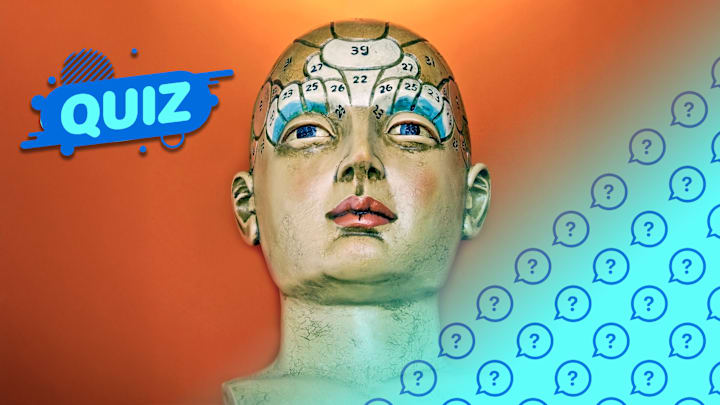For thousands of years, physiognomy—pseudoscience that purports to divine a person’s character from their physical appearance—was accepted as a valid fact. Phrenology, for example, attempted to determine character traits and mental abilities based on the shape of the skull. Can you guess which characteristics were linked to which physical feature, according to the “science” of these discredited historical theories? (All of the answers reflect real things people thought could be derived from physical features.)
Physiognomy dates back to ancient Greece, where Pythagoras “ ‘physiognomized’ the young men who presented themselves for instruction,” looking “into the character and dispositions of men by an inference drawn from their facial appearance and expression, and from the form and bearing of their whole body,” in the words of a writer of that era. In the 16th century, Italian scholar Giambattista della Porta convinced people physiognomy was a credible science. He offered illustrations in his book De Humana Physiognomonia that compared facial features to those of animals. Later on in the 19th century, pastor Johann Kaspar Lavater renewed interest with a four-volume work on the topic.
While we might find it amusing or strange today, physiognomy was once taken seriously enough that it could have potentially derailed modern science. In 1831, the captain of the Beagle, Robert FitzRoy—who was an admirer of Lavater’s work—nearly refused to seat a passenger based on the belief the man’s nose indicated he didn’t have the needed stamina for the voyage. The man was Charles Darwin, and his theory of evolution by natural selection was informed by his travels on the ship. “The voyage of the Beagle has been by far the most important event in my life and has determined my whole career,” he wrote of the journey, one which was nearly undone by his suspect honker.
Take Our Latest Quizzes:
